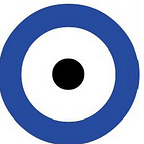How can technology solve the inefficiency in Market for Lemons?
How come car value drops as soon as it exits the showroom ?
The significant price difference between a new vehicle and its value right after exiting the showroom is often described as surprising and disappointing. Many variables come into play to explain such a sudden price drop: equipment discrepancy due to lengthy OEMs supply chains, franchised car dealers margin structure to generate a minimum margin to stakeholders and of course information asymmetry now that the “new car” enters the infamous market of used-cars where full transparency stills seems unreachable.
This market effect has been studied by George Akerlof, an American economist awarded with the Nobel Prize of Economy for his theory on information asymmetry. This theory is better known as the Market for Lemons inefficiency. Lemons is a term used in the U.S. to define a used vehicle that is purchased and revealed to be in a bad condition afterwards.
The used-car market illustrates the information asymmetry problematic perfectly well:
- On the seller side, the seller has very good information about the product that he is trying to sell, he knows if the car is a lemon or a high quality product. Sellers of high quality cars are reluctant to sell their vehicle for a deprecated price.
- On the buyer side, the buyer only detains the information provided by the seller. As buyers fear that they are going to buy a lemon, they are willing to pay much less than the retail price. From a buyer standpoint, there is no way to tell the difference between a good car and a lemon. And if buyers could tell the difference there would be two markets, one for lemons and one for high quality cars.
This information asymmetry makes the used-car market quite inefficient. Since the used-car market comprises both lemons and high-quality cars, only transparency can solve the issue. Akerlof pointed out that this inefficiency should not be tackled by governments but by the private sector instead.
Private sector come into play
Historically, a lot of companies have worked on solving this issue. Carfax, for instance, was created in 1984 and brought to the global market thorough historic data about any used-car available on the market (repairs, accidents, maintenance…). Hence, Carfax has had a first substantial impact on solving the information asymmetry issue while remaining a few gaps.
Of course, there are ways to reassure car buyers, like certifications by third parties, extensive research, third party databases, auto mechanic appraisal, diagnostic test, Certified Pre-Owned programs or VIN report checks. But solving this issue, accessing transparent information is costly, both in terms of time and money (fees of third parties, time of research etc). Sometimes the info is even impossible to find. In the end, asymmetries remain but as for all market inefficiencies, companies find innovative ways to fix it.
Transparency technologies
Now it’s clear, in the use-car market the value lies in the information level. Stakeholders who own the most qualified information and data about a vehicle can price it at the fairest value and create the most revenue. That’s where disruptive technologies come into play:
- Sound recognition allows dealers and buyers to be alerted if there is an inaccuracy in the engine sound. In the US, ACV Auctions has launched a revolutionary product using complex machine learning models that provide very accurate results.
- Computer vision brings a more accurate and standardized way of detecting, classifying and estimating damages on vehicles based on images or videos. The largest automotive players are leveraging such solutions to streamline their operations and enable anyone to run self-inspection.
With 3D modeling and ever increasing intelligence, AI companies will soon be able to detect vehicle interior damages and alert of malfunctions inside vehicles. Will the technology make the used car market efficient at some point?
